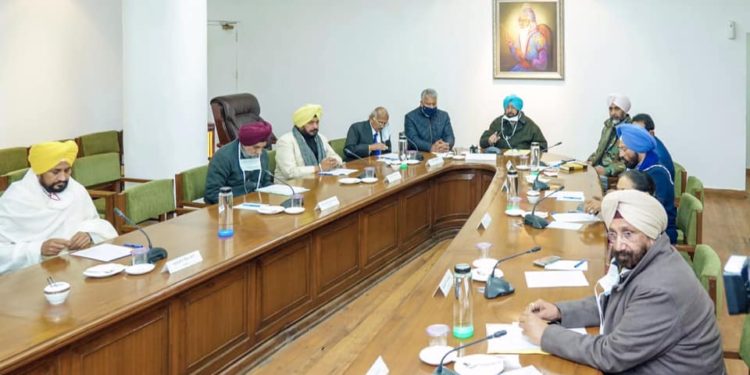CHANDIGRH,February 01, 2021: The Punjab Cabinet led by Chief Minister Captain Amarinder Singh on Monday approved the Punjab Excise Policy 2021-22 with a projected target to mop up Rs.7002 crores through excise revenues as against the current year’s revenue of Rs.5794 crore, showing an increase of 20%.
Overall, the Excise policy has been largely focused on providing relief to retail licensees and to keep buoyancy in liquor trade.
According to a spokesperson of the Chief Minister’s Office, the policy aimed at renewal of the existing vends, subject to lifting of additional liquor by the licensees, ensuring a minimum growth of revenue of 12% during 2020-21. The revenue of current year is expected to Rs.5794 crore as against Rs.5027 crore of previous year, showing an increase of 15%.
The spokesperson further said that the state government is banking on the superb performance of the Excise department during the year 2020-21 despite Covid-19 disruptions, which is now slated to garner around Rs. 300 crores over and above the budgeted target of Rs.5578 crores. If successful, the government would be able to jump from Rs.5073 crores in 2019-20 to Rs.7000 crores in 2021-22, an increase of whopping 40% in two years. The department proposes to collect the additional revenue by increasing the quota (minimum quantity to be sold by a licensee) of Punjab Medium Liquor by 12%, Indian made Foreign Liquor ( IMFL) by 6% and Beer by 4% over last year respectively. In a first, the department has proposed to impose a quota for foreign liquor in Municipal Corporation areas and ‘A’ Class municipalities.
The Excise policy has been formulated specially to give relief to those sections of the society which were affected negatively due to Covid-19. Not only has the Annual Fixed license fee for bars in hotels & restaurants been slashed by around 30% but the fee on consumption of liquor (assessed fee) has also been reduced. The Annual Licence fee for marriage palaces has also been reduced by 20%. This relief will go a long way in supporting the badly affected hospitality sector during the Covid phase. The Policy allows Renewal of existing vends subject to lifting of additional liquor by the licensees. It is likely to bring stability in the liquor trade and will also generate additional revenue for the state exchequer. The government has not increased the incidence of taxes on country liquor thereby maintaining the last year liquor prices for the consumers. This would help sale of legal liquor and the department to combat sale of cheap illicit liquor which is hazardous to life and health of consumers. There would be no increase in sale price of liquor.
In view of the success achieved through ‘Operation Red Rose’ the department has resolved to continue the enforcement activities under the said operation with full vigour. The department proposes to introduce more technology in tracking the manufacture, movement and stocking of liquor in the state.
The wholesale trade of liquor would be monitored online by the Government replacing the present L-13 wholesale licensees. The conversion quota has been increased from 15% to 20%. The fix and open quota percentage has been kept at 30:70 as existing.
The State Government has also decided to place a moratorium on setting up of new Distilleries, Breweries or Bottling plant. It has also decided no new Letter of Intent (LoIs) will be issued for establishing manufacturing units in the current year. The government has also made it mandatory for the LoIs issued for setting up of a Bottling Plant to complete their project by March 31, 2023.
In order to maximise the revenue, a minimum guaranteed quota for imported foreign liquor has been introduced in Municipal Corporations, A-Class Municipal Committees etc. The L-1 (Import)/L-1BB licensees shall have to procure IFL from the custom bonded warehouses situated in Punjab only.
To encourage ethanol manufacturers and proper utilisation of agriculture produce, a new license (E-2) has been introduced for setting up an ethanol based distillation plant with a nominal fee.
The border areas of the State of Punjab have been given relief by converting 25% of the Fixed License Fee (FLF) to Additional Fixed License Fee (AFLF).








